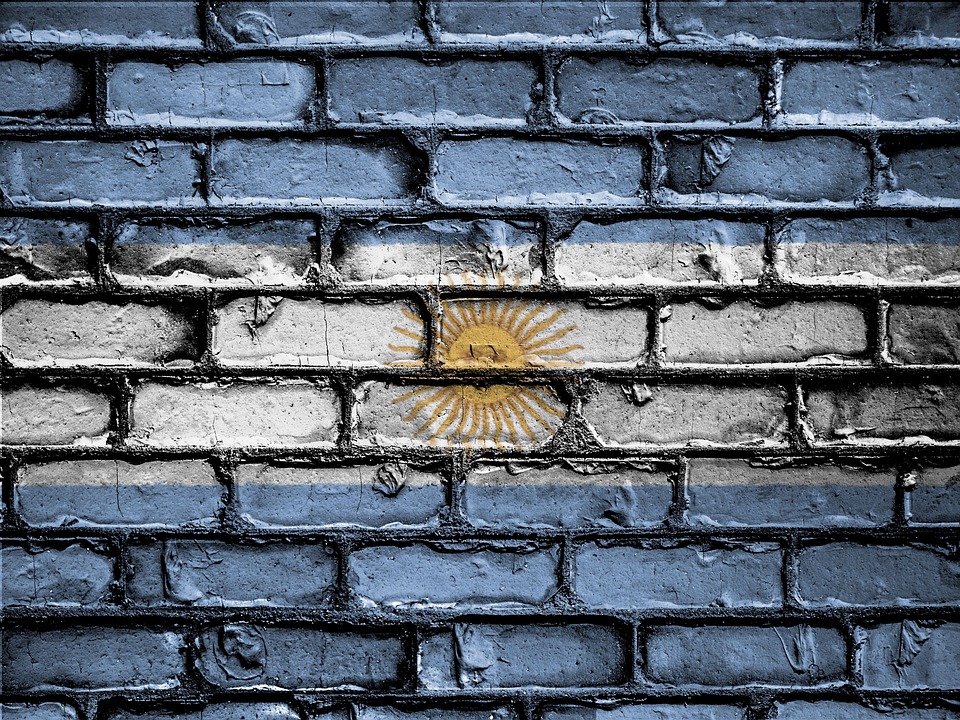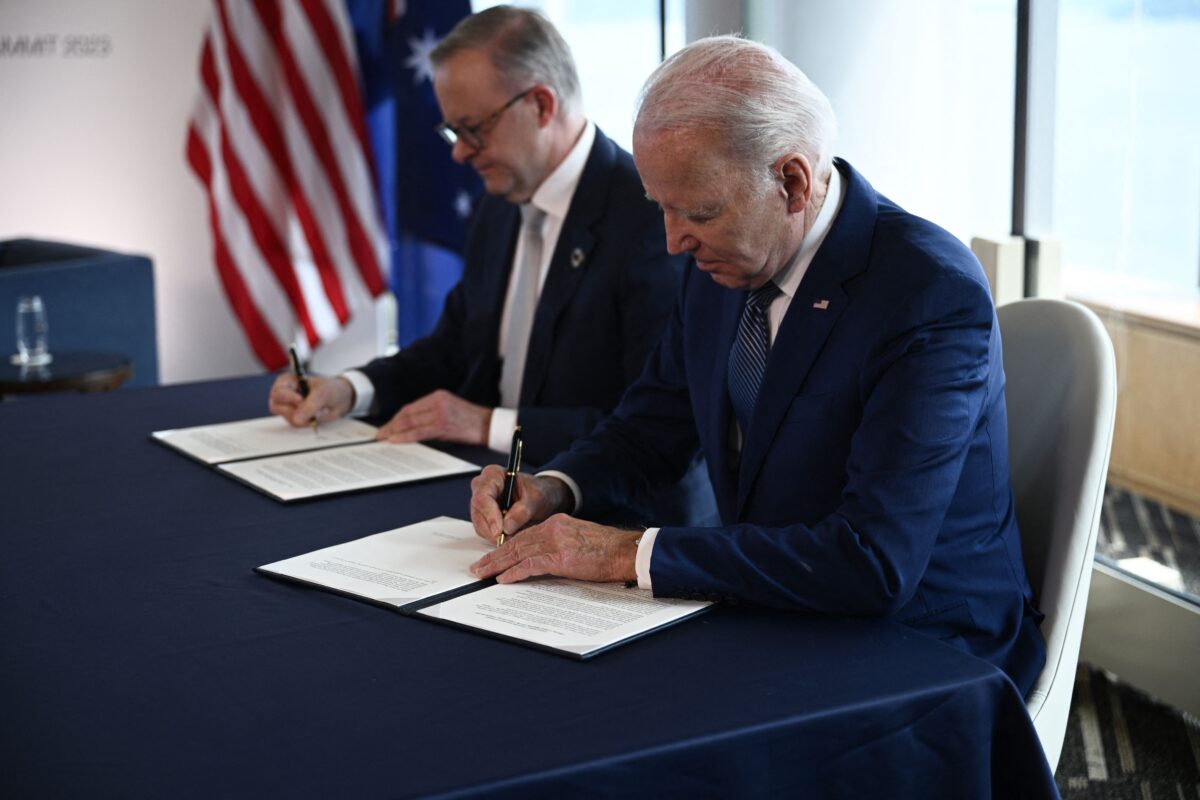The trend away from the U.S. dollar in global trade and finance is accelerating rapidly as inflation persists, government debt levels explode, and the Chinese Communist Party (CCP) roams the planet negotiating deals in other currencies.
The economic and political implications of the dollar’s possible loss of its prized status as global reserve currency are hard to overstate, according to experts.
In fact, such a development—if and when it occurs—could prove catastrophic to U.S. consumers as their spending power evaporates, economists are warning amid debt-ceiling negotiations that have sent tremors around the world.
Numerous analysts who spoke with The Epoch Times warned that the CCP and other U.S. adversaries were actively advancing the global effort to undermine the dollar.
However, current and former U.S. lawmakers and policymakers also placed much of the blame on the Biden administration, U.S. government spending, and the Federal Reserve’s monetary policies.
“The dollar is clearly at risk from foreign enemies who wish to challenge American power and domestic fools who believe the American credit card has no limits on spending,” explained Kevin Freeman, host of the Economic War Room and an authority on economic warfare.
In comments to The Epoch Times, Freeman, who has briefed top U.S. military officials and policymakers, pointed to CCP strongman Xi Jinping and Russia’s Vladimir Putin as foreign adversaries seeking to undermine the dollar.
The Saudis and numerous powers across Africa and Latin America have joined the “anti-dollar cabal” in recent months, he added.
But the U.S. government deserves some of the blame for the developments, he said.
“Sadly, we are making it easy for them with massive debt increases, an erratic foreign policy, and Washington’s arrogance that ignores the threat,” said Freeman, who also serves as a senior fellow at the Center for Security Policy.
Multiple members of Congress who spoke with The Epoch Times echoed the concerns about the Biden administration’s role in the accelerating shift away from the dollar.
Rep. Paul Gosar (R-Ariz.) pointed to the president himself. “Joe Biden’s war mongering, runaway inflation, and irresponsible spending sprees have threatened our currency’s value,” he said.
A broad range of experts who spoke with The Epoch Times were divided on when or even if the U.S. dollar might lose its status as global reserve currency, and what that could mean for the U.S. economy and the American people.
While many are warning of calamity, some even said there may be a “silver lining” to the U.S. dollar losing its global position.
But regardless of when or how the saga plays out, the significance of the trends surrounding the U.S. dollar and its role in the world will be profound and highly disruptive at the very least, experts said.
De-dollarization
Thanks to the unchallengeable supremacy of the United States in the aftermath of World War II and the dollar’s nominal backing by gold at the time, and later its endorsement by oil exporters as the “petro-dollar,” the American currency has reigned supreme among currencies for over 70 years.
The dollar still benefits from what is known as the “network effect” as well as the fact that U.S. capital markets are the deepest and most liquid in the world, experts told The Epoch Times.
But if current trends away from the dollar and political instability continue, analysts say the American currency’s coveted status as the global reserve could be shaken or even lost for good. In fact, the process is already underway, some experts warned.
The dollar’s share of global reserves just two decades ago was at about 75 percent, according to experts and analysts. Today, estimates suggest it is under 50 percent and shrinking fast.
Speaking at the 2023 Milken Institute Global Conference, International Monetary Fund (IMF) chief Kristalina Georgieva highlighted the trend.
“There has been a gradual shift away from the dollar,” she said, adding that the euro, the British pound, and the CCP’s yuan were all gaining ground.
While Georgieva said she did not anticipate an imminent rise of a viable alternative as “we may migrate to central bank digital currencies massively,” that does not mean it will not come eventually.
Non-Western central banks are also buying gold in record quantities, and analysts expect that demand to remain strong.
“We think this trend of central bank buying is likely to continue amid heightened geopolitical risks and elevated inflation,” Swiss bank UBS said in a note.
“In fact, the US decision to freeze Russian foreign exchange reserves in the aftermath of the war in Ukraine may have led to a long-term impact on the behavior of central banks.”
Even traditional U.S. allies have been conducting deals in non-dollar currencies. In late March, for example, the French government completed its first cross-border liquified natural gas deal in Chinese yuan.
Also in March, authorities in Brazil—an economic powerhouse that historically has had close relations with the United States—also inked a deal with the CCP to trade in domestic currencies rather than the dollar.
The trends are accelerating. According to a recent note by prominent currency analyst Stephen Jen at Eurizon SLJ, the dollar lost market share in 2022 at 10 times the pace as during the previous 20 years—a trend he says most analysts have missed.
The speed at which this is happening is dramatic, too. “Adjusting for these price changes, the dollar, we calculate, has lost some 11 percent of its market share since 2016 and double that amount since 2008,” added Jen, who previously worked at Morgan Stanley.
Much of the recent acceleration has to do with U.S. policy on Ukraine. “This erosion in the USD’s reserve currency status has accelerated precipitously since the start of the war in Ukraine,” noted Jen, pointing to “exceptional actions” against Russia that “startled” large reserve-holding countries.
“What we witnessed in 2022 was sort of a ‘defund-the-global-police’ moment, whereby many reserve managers in the world disagreed with the conduct of both Russia and the US.”
CCP Agenda
Calls for a new global monetary system and reserve currency are not new, though. Even a decade ago, the CCP was promoting the idea through its propaganda machine.
“What may also be included as a key part of an effective reform is the introduction of a new international reserve currency that is to be created to replace the dominant U.S. dollar, so that the international community could permanently stay away from the spillover of the intensifying domestic political turmoil in the United States,” Liu Chang wrote in an opinion piece for Xinhua, a CCP propaganda and intelligence-gathering operation.
Analysts said the Xinhua editorial was undoubtedly approved by senior CCP officials and clearly reflected Beijing’s views.
One benefit of such a policy would be to “encourage Washington to play a much more constructive role in addressing global affairs,” the CCP piece continued, calling for a “de-Americanized” so-called “new world order.”
It was hardly the first time the CCP touted the idea. In a 2009 report by People’s Bank of China chief Zhou Xiaochuan dubbed “Reform the International Monetary System,” the CCP called for an “international reserve currency that is disconnected from individual nations and is able to remain stable in the long run.” The proposed global currency could be issued by the IMF, he said.
In other words, almost 15 years ago, the highest echelons of power in Beijing were plotting a global currency to replace the dollar as the world reserve.
When asked about the idea at a Council on Foreign Relations event, then-U.S. Treasury Secretary Timothy Geithner shocked observers. “We’re actually quite open to that,” he said, causing the dollar to plunge.
Many of the same policymakers from the Obama administration in 2009 who were supportive of the idea remain in positions of influence in the Biden administration today.
And as The Epoch Times reported in 2021 amid the CCP virus crisis, the IMF has been moving in that direction with its special drawing rights, a sort of proto-global currency issued by the global financial institution.
Former U.S. Assistant Secretary of State for International Organizations Kevin Moley, a leading voice warning of the CCP’s agenda, said the shift away from the U.S. dollar was “one of the most dangerous developments in the post-war era.”
While he blasted the Biden administration for angering and alienating U.S. allies, he pointed to the CCP—the “greatest existential threat to the Republic since 1776”—as the main driver of the ongoing shift.
“This is all part and parcel of their plan to dominate the world,” he said. “It is China’s intention to become the dominant superpower of the 21st century.”
Key members of the Biden administration have publicly celebrated the CCP’s growing role on the world stage.
For example, senior Biden administration diplomat Bathsheba Crocker, who served as assistant secretary of state for international organization affairs during the Obama administration, was quoted by CCP paper China Daily as saying she was “particularly pleased” to see Beijing taking more responsibility in the United Nations.
Previous presidential administrations, which Moley said were “misled” by their own “arrogance,” have also contributed to the CCP’s ongoing push to dethrone the dollar, he said.
With House Republicans revealing evidence of CCP money being funneled to Biden family members in suspicious transactions, questions about CCP influence in Washington continue to grow.
Domestic Causes
But while the CCP may be hoping to see the dollar replaced as the global reserve, that would be much more difficult to accomplish if not for the policies pursued by the federal government and the federal reserve,” lawmakers told The Epoch Times.
Gosar, for instance, told The Epoch Times that “war mongering” by Biden along with “runaway inflation and irresponsible spending sprees” have contributed in a major way to the dollar’s escalating woes.
“Americans have taken for granted that most countries try to do business using U.S. dollars,” he said. “Our dollar has historically been seen as stable, reliable, and useful. This benefits our nation greatly.”
Now, however, U.S. financial dominance is “under threat” because of Biden’s “incompetence,” the GOP lawmaker told The Epoch Times.
“Countries like Russia, China, and India are now looking at using other currencies because Biden has abused our currency and banking system,” he said, pointing to legislation he and others introduced to link the dollar to gold again as a way to rein in the problems.
Former Congressman Ron Paul, a longtime advocate for monetary reform who served in key congressional positions relating to currency and banking, also pointed to U.S. policy as a leading cause of the shift away from the dollar.
While it’s true that foreign governments and central banks right now appear to be “ganging up” on the dollar, Dr. Paul told The Epoch Times that much of the blame belongs with U.S. policy makers.
“Other governments are ditching the dollar because of our foreign policy causing so much harm to them and also our warmongering policy, which is not healthy for the world or our own peace,” said the veteran lawmaker and author of the best-selling book “End the Fed.”
David Stockman, director of the Office of Management and Budget (OMB) in the Reagan administration, said he was not surprised at the global trend away from the U.S. dollar considering U.S. financial and monetary policies.
“For years, the Federal Reserve has been flooding the financial system with dollars,” he said. “As a result, people are looking for alternatives that have a better chance of maintaining their value over time.”
Continue reading the full article at The Epoch Times: IN-DEPTH: Dangerous Global Shift From Dollar Driven by CCP and US Policy, Experts Say




















































